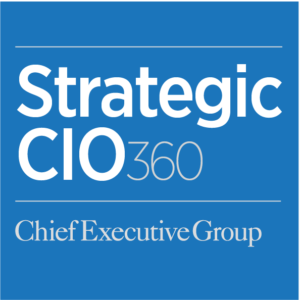Every company is now a technology company. No matter the business a company is in, its competitive success leans heavily on a host of intelligent technologies, the cloud, and innovative mobile apps that keep customers and employees connected and power the enterprise. At the same time, a radically human approach to technology innovation, often diametrically opposed to existing approaches, has now burst forth and brought companies to a new moment of truth—and a new moment of trust.
By taking a decisive turn toward human-centered technology that inspires trust, leading organizations are out-innovating their competitors and upending the very nature of innovation as it was practiced over the previous decade.
For example, machine “teaching,” first developed by Microsoft, is enabling non-technical people and employees at all levels of organizations to directly impose their knowledge and expertise on AI and other intelligent systems, instead being at their mercy. The miraculous development of Covid-19 vaccines by Moderna and Pfizer/BioNTech in months instead of years was made possible by AI-powered drug discovery platforms that put scientists in the driver’s seat instead of brute force machine calculation.
Algorithms have long been used to uncover correlations but now they are closing in on more human-like abilities such as common sense and the understanding of causation. GNS Healthcare used its causal AI platform to not only predict which patients with metastatic colorectal cancer will respond to which treatments, but why. Even now familiar chatbots, like Amazon’s Alexa, are acquiring the ability to decipher queries they’ve never encountered before, moving toward fully conversational AI.
“Emotional AI,” designed to read the emotions of drivers, may help prevent accidents caused by distracted driving, drowsiness and road rage. Used early on in work with autistic children to help them understand and express their emotions, such a system is being created by Affectiva, a Boston startup founded in 2009 by researchers from MIT’s famed Media Lab (and acquired in mid-2021 by Swedish company Smart Eye). Affectiva’s algorithms read people’s faces to detect their emotional and other cognitive states.
It’s an enormously complex challenge. Cognitive states like drowsiness come on gradually; facial manifestations of emotions can differ by age, gender, ethnicity and culture. Once perfected, such systems could help keep drivers calm, attentive, and awake by automatically providing appropriate interventions, alerts, or suggested actions. Radically human versions of machine intelligence, like emotion AI, have a much greater chance of instilling confidence in humans that systems are boosting their abilities rather than replacing them.
Pymetrics, a Manhattan-based AI startup, is using AI to help eliminate the bias that undermines trust in automated hiring systems. Harnessing a blend of neuroscience-based tests and machine learning, Pymetrics has developed a series of online tests to pair job candidates with the right openings. As described in Quartz, companies that partner with Pymetrics have their current employees take an assessment designed to measure attributes such as memory, attention span, altruism, skepticism and appetite for risk. Pymetrics then pinpoints patterns among the top performers in various roles. For example, a salesperson might lean toward being more high-risk/high-reward, while a software developer might be more process and detail oriented. All this information feeds into the Pymetrics algorithm to evaluate job candidates who take the same test as they apply for different roles within the company.
There are no right or wrong answers. If the results suggest a candidate isn’t necessarily a natural planner, the conclusion is not that they’re “disorganized.” Rather, they’re “improvisational.” The goal is not to rank order the candidates but to determine jobseekers’ cognitive and behavioral traits that make them well suited for various positions. The test is available in twenty languages and is offered in different versions for people with dyslexia, ADHD, and colorblindness. Companies such as Nielsen, LinkedIn, Kraft Heinz, MasterCard, McDonald’s and Accenture have already implemented Pymetrics as a part of their job application process.
Explainable AI are emerging systems with the ability to explain their rationale for decisions, characterize the strengths and weaknesses of their decision-making process, and convey an understanding of how they will behave in the future.
With the metaverse—networks of 3D virtual worlds—looming on the horizon, trust will grow even larger in importance. As we move from text, images and video, most of which are posted, shared and remain on a platform, to real-time human interactions in the form of gestures and speech, we have the opportunity to build a metaverse that is humane, fair, transparent, private and secure.
This even more radically human technology to come vividly illustrates what’s really at work with trust. For your company, it may be a value you proclaim, but for stakeholders it’s an experience, rooted in trust. Delivering it requires wise and rapid mastery of new approaches to innovation that are only just beginning to emerge and leaders who, no matter their industry, are able to see opportunity at the new, radically human nexus of people and technology.
At this moment of truth—and trust—for people and technology, the stakes couldn’t be higher; the opportunity couldn’t be greater. Radically human technology has brought us to a new inflection point where we can create almost anything we can dream up. As these new terms of our relationship with technology unfold, we will find ourselves moving deeper and deeper into reflections about what makes us truly human. In the final analysis, that may offer the most radically human hope for the future.









